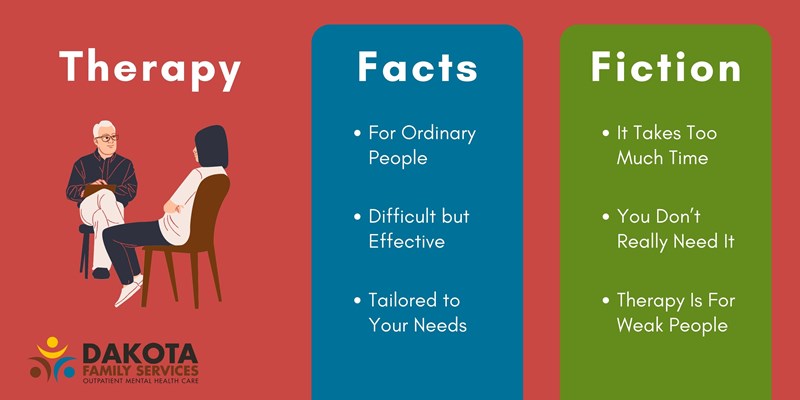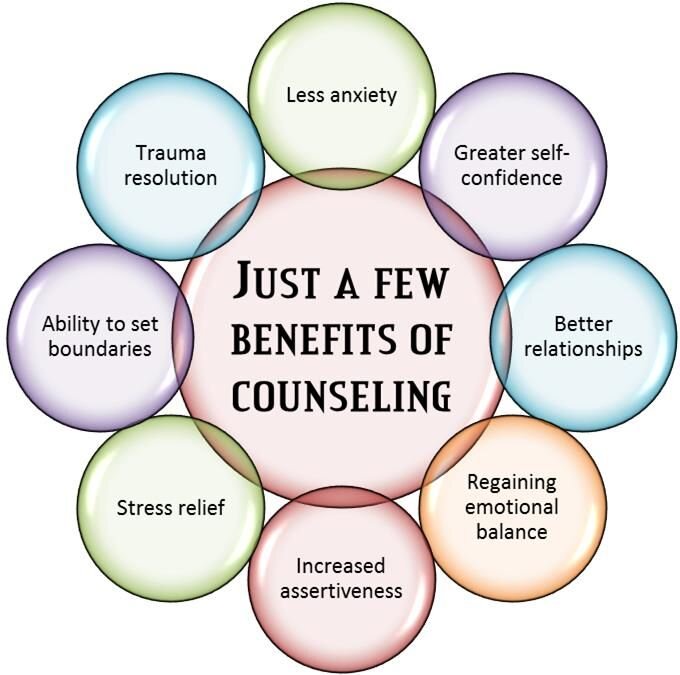Opening the Keys of Mental Health: An Overview of Therapy and Treatment Choices
Mental health is a complicated and crucial aspect of general wellness. Many counseling and treatment options exist to resolve different emotional obstacles. Each approach provides distinct benefits and methods tailored to specific requirements. Recognizing these alternatives is crucial for anyone looking for to boost their mental health and wellness. Couples Therapy. What factors should one take into consideration when discovering these methods? The answer might reveal a course to a healthier mood
Comprehending Mental Wellness and Its Importance
Mental health incorporates the psychological, psychological, and social well-being of individuals, substantially affecting exactly how they believe, really feel, and act. Its significance can not be overstated, as it impacts every element of life, including connections, job performance, and total lifestyle. Individuals with excellent psychological wellness tend to manage anxiety a lot more properly, preserve healthier relationships, and make notified choices. Conversely, poor psychological wellness can lead to psychological distress, impaired functioning, and different mental conditions, which may require specialist intervention. Understanding psychological health is crucial for recognizing the indications of distress and the demand for assistance. Awareness likewise promotes compassion and decreases preconception, urging people to look for assistance when necessary. By focusing on mental wellness, areas can promote environments that support psychological wellness, eventually leading to much healthier, more resilient people. This foundation functions as a vital step towards efficient mental health and wellness counseling and therapy alternatives.
Kinds Of Therapy Methods
Therapy approaches differ extensively, each tailored to satisfy the one-of-a-kind needs of people seeking assistance. Among one of the most usual kinds are cognitive-behavioral therapy (CBT), which concentrates on determining and altering unfavorable idea patterns, and person-centered therapy, which stresses empathy and acceptance. Psychodynamic therapy discovers unconscious processes and previous experiences to recognize existing habits, while solution-focused short treatment aims to identify options instead of investigate problems.Additionally, household treatment addresses relational dynamics and interaction within families, promoting healthier interactions. Team therapy gives a common space for individuals to share experiences and support one an additional. Various other strategies consist of existential therapy, which motivates people to find significance and purpose, and art or music treatment, which utilizes innovative expression as a restorative device. Each approach provides distinct methods and ideologies, enabling customers to locate one of the most suitable method for their individual development and recovery trips.
Checking Out Different Treatment Modalities
In the domain name of psychological wellness counseling, different treatment techniques supply distinct strategies to therapy. Cognitive Behavioral Treatment stresses the connection in between thoughts and actions, while Psychodynamic Therapy explores unconscious influences on psychological wellness. Furthermore, Mindfulness-Based Methods promote present-moment awareness as a way to improve emotional guideline and total mental wellness.
Cognitive Behavior Modification
Cognitive Behavior Therapy (CBT) stands apart as one of the most extensively practiced and investigated techniques in psychological wellness treatment. This technique concentrates on the interconnection between feelings, actions, and thoughts, stressing that altering unfavorable idea patterns can result in boosted psychological well-being and behavioral adjustments. CBT is structured, commonly involving a minimal variety of sessions, and intends to gear up people with practical skills to handle their symptoms. It is reliable for a variety of problems, including anxiousness problems, anxiety, and post-traumatic tension condition. By making use of strategies such as cognitive restructuring and direct exposure therapy, CBT promotes durability and encourages customers to confront challenges head-on, making it a valuable option in the landscape of psychological health and wellness treatments.
Psychodynamic Treatment Methods
Psychodynamic therapy methods provide a deep exploration of the subconscious mind and its influence on actions and psychological well-being. Rooted in Freudian theory, these techniques emphasize the importance of early youth experiences and subconscious disputes. With methods such as cost-free organization, dream analysis, and transference, individuals acquire insight into their sensations and ideas, promoting self-awareness and understanding. This restorative modality encourages customers to uncover quelched emotions and unresolved concerns, which can be essential in dealing with current mental obstacles. By taking a look at the interplay between existing behaviors and previous experiences, psychodynamic therapy intends to promote emotional healing and personal growth. Ultimately, it offers a framework for people to explore complex internal characteristics that influence their psychological health.

Mindfulness-Based Methods
While conventional therapies usually concentrate on past experiences, mindfulness-based techniques prioritize present-moment awareness as a pathway to emotional wellness. These approaches, consisting of mindfulness-based cognitive therapy (MBCT) and mindfulness-based stress decrease (MBSR), urge individuals to engage completely with their thoughts and sensations without judgment. Practitioners discover to observe their mindsets, promoting a better understanding of emotional triggers and responses. This practice not only alleviates signs and symptoms of anxiousness and anxiety but also improves general psychological durability. By incorporating mindfulness exercises, such as reflection and deep breathing, customers grow a sense of peace and quality. Eventually, mindfulness-based methods encourage people to browse life's difficulties with increased awareness and acceptance, promoting a healthier partnership with their thoughts and emotions.
The Function of a Therapist or Therapist
A competent specialist or therapist plays an essential duty in supporting people via their psychological wellness journeys. this link They give a secure, non-judgmental room where clients can share their thoughts and sensations honestly. Couples Therapy. By utilizing various therapeutic strategies tailored to every person's needs, specialists assist customers explore underlying concerns that may add to their psychological wellness challenges.Therapists offer guidance and tools to manage stress and anxiety, stress and anxiety, anxiety, and other emotional troubles. Their training equips them to acknowledge patterns in behavior and assumed procedures, helping with insights that result in personal development. They additionally foster a solid restorative partnership, which is essential for effective outcomes.Moreover, therapists stay fully commited to confidentiality and ethical requirements, ensuring a trusting atmosphere. Ultimately, the function of a specialist or therapist is to empower individuals, urging them to develop durability and healthier coping approaches while guiding with life's intricacies
Exactly how to Pick the Right Therapy or Treatment Choice
Selecting the ideal therapy or treatment option begins with evaluating individual requirements. It is important to comprehend personal difficulties and goals before discovering various treatment styles. This fundamental step can considerably affect the performance of the selected technique.
Analyze Your Requirements

Exactly how can individuals effectively analyze their mental health requires when examining counseling or treatment choices? First, they should review their mood and identify certain issues, such as relationship, anxiety, or anxiety obstacles. Journaling can be a beneficial device for tracking ideas and feelings with time. Furthermore, people may profit from seeking comments from relied on buddies or relative pertaining to perceived modifications in habits or mood. It is also helpful to examine individual objectives for therapy, such as improving coping skills or getting understanding right into individual patterns. Investigating numerous therapy techniques and their viability for particular requirements can aid in making an informed choice. Ultimately, self-awareness plays an essential function in choosing the best path for psychological wellness assistance.
Check Out Therapy Styles
While passing through the varied landscape of treatment choices, individuals need to think about various styles of counseling to find the ideal fit for their one-of-a-kind needs. Cognitive Behavior Modification (CBT) focuses on changing adverse thought patterns, while Psychodynamic Treatment explores unconscious processes and previous experiences. Humanistic approaches stress personal growth and self-actualization, promoting a helpful setting. Furthermore, mindfulness-based treatments cultivate present-moment awareness, aiding psychological law. For those looking for framework, Solution-Focused Quick Therapy targets certain objectives and options. Group treatment offers a common setting for common experiences and support. Eventually, people should certainly review their choices, convenience levels, and particular difficulties, ensuring they pick a restorative design that reverberates with their individual trip toward mental well-being.
Getting Over Obstacles to Looking For Help

The Benefits of Therapy and Treatment for Psychological Health
Looking for aid for psychological wellness challenges can cause considerable renovations in overall well-being. Counseling and treatment offer individuals with a safe space to discover their sensations and ideas, promoting self-awareness and personal growth. These professional services furnish customers with dealing techniques and problem-solving skills tailored to their one-of-a-kind situations.Moreover, therapy can lower symptoms of stress and anxiety, clinical depression, and various other mental health and wellness problems, improving psychological resilience. Regular sessions promote liability and urge people to set and accomplish individual objectives. Through various restorative modalities, such as cognitive-behavioral therapy or mindfulness practices, clients learn to reframe adverse ideas and establish healthier behaviors.Additionally, the restorative connection itself can be a resource of Resources assistance, helping to deal with seclusion and isolation. Overall, taking part in counseling and treatment is a positive step towards achieving psychological health, allowing individuals to lead even more fulfilling lives.
Often Asked Questions
The Length Of Time Does Therapy or Treatment Normally Last?
The period of counseling or treatment varies significantly, usually lasting from a couple of sessions to several months or years. Elements affecting this consist of the person's specific demands, the kind of treatment, and healing objectives.
What Should I Expect Throughout My First Session?
Throughout the first session, individuals can anticipate an intro, discussion of worries, and the therapist's method. They may complete analyses and develop goals, promoting a secure environment for open communication and structure connection.

Are There Any Threats Related To Treatment?
Treatment can involve dangers, such as emotional discomfort, susceptability, or facing painful memories. While these challenges may occur, they can likewise cause personal growth and recovery, making the healing process complex yet possibly satisfying.
Just How Can I Tell if My Specialist Is an Excellent Fit?
Determining if a therapist is an excellent fit involves evaluating comfort, communication design, and restorative approach. Positive connection and development in the direction of objectives are indications of an appropriate suit, important for effective mental health and wellness support.
Will My Insurance Policy Cover Therapy or Treatment Sessions?
Establishing insurance coverage for therapy or treatment sessions typically requires contacting the insurance coverage company straight. Plans vary substantially, so people should validate benefits, co-pays, and any kind of essential pre-approvals prior to going after treatment solutions. Among the most usual kinds are cognitive-behavioral therapy (CBT), which focuses on identifying and transforming negative idea patterns, and person-centered therapy, which highlights compassion and acceptance. Psychodynamic therapy discovers unconscious processes and past experiences to comprehend present behavior, while solution-focused brief therapy aims to determine services rather than explore problems.Additionally, household therapy addresses relational dynamics and communication within households, cultivating healthier interactions. Other techniques consist of existential therapy, which urges individuals to discover definition and purpose, and art or songs therapy, which makes use of creative expression as a therapeutic device. Cognitive Behavioral Therapy emphasizes the link between thoughts and actions, while Psychodynamic Treatment checks out subconscious influences on emotional well-being. Cognitive Behavior Therapy (CBT) focuses on changing unfavorable thought patterns, while Psychodynamic Treatment discovers previous experiences and subconscious procedures.